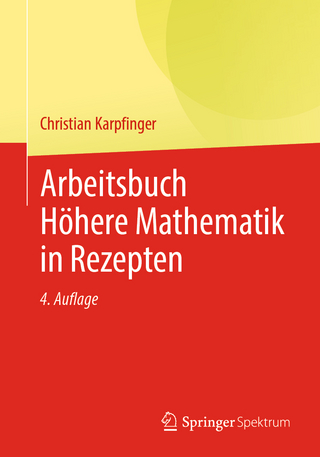The Steiner Tree Problem
Vieweg & Teubner (Verlag)
978-3-528-06762-5 (ISBN)
The main topics of this book are:
Exact Algorithms
Computational Complexity
Approximation Algorithms
Limits of Approximability
Randomness Helps
The Manhattan Steiner Problem
Heuristics
Packing of Steiner Trees
Applications
"A very simple but instructive problem was treated by Jacob Steiner, the famous representative of geometry at the University of Berlin in the early nineteenth century. Three villages A,B ,C are to be joined by a system of roads of minimum length. " Due to this remark of Courant and Robbins (1941), a problem received its name that actually reaches two hundred years further back and should more appropriately be attributed to the French mathematician Pierre Fermat. At the end of his famous treatise "Minima and Maxima" he raised the question to find for three given points in the plane a fourth one in such a way that the sum of its distances to the given points is minimized - that is, to solve the problem mentioned above in its mathematical abstraction. It is known that Evangelista Torricelli had found a geometrical solution for this problem already before 1640. During the last centuries this problem was rediscovered and generalized by many mathematicians, including Jacob Steiner. Nowadays the term "Steiner prob lem" refers to a problem where a set of given points PI, . . . ,Pn have to be connected in such a way that (i) any two of the given points are joined and (ii) the total length (measured with respect to some predefined cost function) is minimized.
Prof. Dr. Jürgen Prömel ist am Institut für Informatik der Humboldt Universität zu Berlin tätig, Prof. Dr. Angelika Steger lehrt am Institut für Informatik der TU München.
1 Basics I: Graphs.- 1.1 Introduction to graph theory.- 1.2 Excursion: Random graphs.- 2 Basics II: Algorithms.- 2.1 Introduction to algorithms.- 2.2 Excursion: Fibonacci heaps and amortized time.- 3 Basics III: Complexity.- 3.1 Introduction to complexity theory.- 3.2 Excursion: More NP-complete problems.- 4 Special Terminal Sets.- 4.1 The shortest path problem.- 4.2 The minimum spanning tree problem.- 4.3 Excursion: Matroids and the greedy algorithm.- 5 Exact Algorithms.- 5.1 The enumeration algorithm.- 5.2 The Dreyfus-Wagner algorithm.- 5.3 Excursion: Dynamic programming.- 6 Approximation Algorithms.- 6.1 A simple algorithm with performance ratio 2.- 6.2 Improving the time complexity.- 6.3 Excursion: Machine scheduling.- 7 More on Approximation Algorithms.- 7.1 Minimum spanning trees in hypergraphs.- 7.2 Improving the performance ratio I.- 7.3 Excursion: The complexity of optimization problems.- 8 Randomness Helps.- 8.1 Probabilistic complexity classes.- 8.2 Improving the performance ratio II.- 8.3 An almost always optimal algorithm.- 8.4 Excursion: Primality and cryptography.- 9 Limits of Approximability.- 9.1 Reducing optimization problems.- 9.2 APX-completeness.- 9.3 Excursion: Probabilistically checkable proofs.- 10 Geometric Steiner Problems.- 10.1 A characterization of rectilinear Steiner minimum trees.- 10.2 The Steiner ratios.- 10.3 An almost linear time approximation scheme.- 10.4 Excursion: The Euclidean Steiner problem.- Symbol Index.
"The book is a very good introduction to discrete mathematics in relation to computer science, and a useful reference for those who are interested in network optimization problems." Zentralblatt MATH, Nr. 17/02
"This book is an excellent introduction to the Steiner tree problems, which starts with network Steiner trees an ends with geometric Steiner trees." Mathematical Reviews, Nr. 11/02
| Erscheint lt. Verlag | 25.2.2002 |
|---|---|
| Reihe/Serie | Advanced Lectures in Mathematics |
| Zusatzinfo | VIII, 241 p. 2 illus. |
| Verlagsort | Wiesbaden |
| Sprache | englisch |
| Maße | 170 x 240 mm |
| Gewicht | 438 g |
| Themenwelt | Mathematik / Informatik ► Mathematik ► Algebra |
| Mathematik / Informatik ► Mathematik ► Analysis | |
| Schlagworte | algorithms • Complexity • Geometric Steiner Problems • Graph • Graphs • graph theory • Steiner-Probleme • Terminal Sets |
| ISBN-10 | 3-528-06762-4 / 3528067624 |
| ISBN-13 | 978-3-528-06762-5 / 9783528067625 |
| Zustand | Neuware |
| Informationen gemäß Produktsicherheitsverordnung (GPSR) | |
| Haben Sie eine Frage zum Produkt? |
aus dem Bereich




